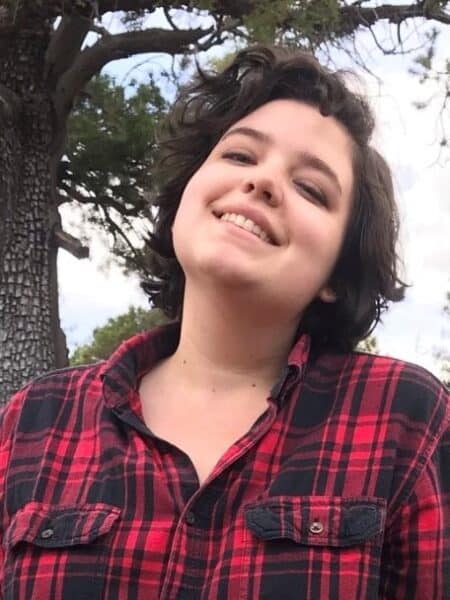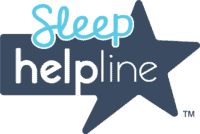Tatiana Maria Corbitt: Celebrating LGBTQ+ Pride Part 4
June is LGBTQ+ Pride Month! Project Sleep is proud to highlight insights from LGBTQ+ members of our community throughout the month of June.

Hi Tatiana! Please tell us about yourself.
I am a 24 year old first-generation university graduate living in the White Mountains of Arizona. I earned my M.S. in Applied Biological Sciences from Arizona State University in 2019. I am a passionate artist and writer. I have a service dog and our favorite activity is day hiking. I hope to take her kayaking with me one of these days!
What is your sleep disorder? At what age were you diagnosed?
I have type 1 narcolepsy with cataplexy. I was diagnosed at age 20 while in college, after my symptoms started following a bad flu virus I contracted.
In your experience, are there similarities and/or differences between living with a sleep disorder and identifying as LGBTQ+?
There are plenty of similarities. For example, the majority of queer people in the US live in states that do not protect them from discrimination in areas like housing, workplaces, and even public settings. We can struggle with keeping jobs, reliable housing, healthcare coverage, and much more. People with disabilities such as narcolepsy often face similar challenges. US law does not adequately protect people with disabilities, especially when it comes to the workplace. These problems trickle down and compound for both of these populations. Living with a disability is also similar to identifying as queer in that many people don’t understand or “agree” with my lifestyle.

What does Pride Month mean to you?
Pride Month means I can be celebrated for my differences. Growing up, I always felt like the odd one out in my family and friend groups. I was taught to hide my differences and to be ashamed of them. Having an entire month dedicated to celebrating the varieties in gender identity and sexual orientation is beautiful to me.
What advice would you give someone who is earlier in their journey in the sleep and/or LGBTQ+ community?
My advice is to reach out to those around you for help. Sometimes family and friends don’t understand. Support systems are vital to healthy living, especially when one lives on the fringes of society like I often feel I am. I encourage people to find support groups where they can listen to other people talk about similar issues. Starting in July I will be facilitating a support group through Wake Up Narcolepsy for LGBTQ+ identifying individuals with narcolepsy. I am hoping this safe space will be a place of comfort and community.
Thank you, Tatiana, for sharing your voice! Find Tatiana and her art on Instagram: @saltytatertats and @studioslumber. Visit Wake Up Narcolepsy’s website to learn about and register for their LGBTQIA online support group.





